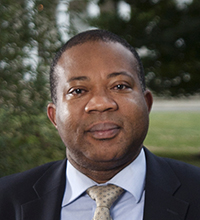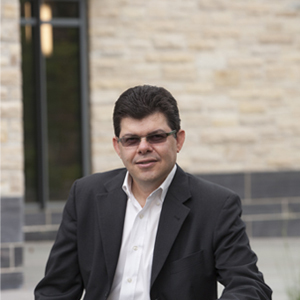Exploring Christianity’s Increasingly Diverse Global Population
January 14, 2021 | Faculty, Featured, International, Public, Religion & Society

Christians once viewed the world in split-screen mode.
There was Europe, the center of the faith. And there was the rest of the world, with large swaths of non-Christian lands that were ripe for the work of missionaries.
But an enormous growth in Christianity across the Global South and a drop in the proportion of Europeans and Americans who identify as Christian has upended that perspective. The center of gravity has shifted from the Global North, serving notice that the future of the faith will look increasingly diverse and dynamic.
This momentous change has fueled bold new scholarship in the field of world Christianity, with scholars from Princeton Theological Seminary taking a leading role.
The Seminary is holding its third annual World Christianity Conference virtually this March 3-6, featuring scholars from across the globe. The conference, like the previous two, is organized by professors Afe Adogame, Raimundo Barreto, and Richard F. Young in the Department of History and Ecumenics.
“World Christianity pays attention to the unsung, unheard stories of Christianity, particularly in those places that used to be considered the mission field,” says Adogame, the Maxwell M. Upson Professor of Religion and Society. “The perception used to be that Africa, Asia, and Latin America were the mission field. But that narrative has changed.”
A century ago, about two-thirds of all Christians lived in Europe, and less than two percent in sub-Saharan Africa, according to a 2011 study by the Pew Research Center.

That has now nearly evened out, with Europe and sub-Saharan Africa each having about a quarter of the world’s 2.1 billion Christians. The Americas are meanwhile home to more than a third of all Christians and the Asia Pacific region to about 13 percent.
The changes are evident on the ground.
In South Korea’s capital city of Seoul, there are some 17 megachurches with at least one having a membership in the hundreds of thousands. In Africa, Christians are rapidly building four-year colleges and universities, advancing both their religion and higher education on the continent. In predominantly Roman Catholic countries in Latin America, Protestant churches, including Pentecostal and charismatic movements, are growing.
The growth occurred gradually as Christianity was absorbed at the local level. But Adogame notes that missionary literature often conveys a simplistic narrative in which Christianity grew through large-scale conversions and the disappearance of indigenous faiths.
“This is never true,” he says. “What we’re interested in is the indigenization, the domestication, and the translation of the faith into the vernacular that makes Christianity real to people.”
“Our communities are becoming increasingly and irreversibly plural,” Barreto says. “It is almost impossible to minister without some understanding of other cultures, other Christian traditions, other
religions, and their histories.”
Even in the Global North, the changes are clear. One of the largest congregations in Europe is a Nigerian Pentecostal church in Kiev. And in the United States, congregations of African, Asian, and Latino immigrants have grown, sometimes even buying church buildings that older, established congregations had closed.
In some respects, the United States and Europe have become mission fields.
“What does it mean when you have as many Korean missionaries in the United States as you have American missionaries in Korea?” Adogame queries. “What can happen with this interchange?”
The Seminary’s first two conferences explored a range of topics, from “Currents & Perspectives on Chinese Christianity” to “Pentecostalism as Liberation Theology in Ghana.” This year’s conference will focus on Christianity’s interaction with other faiths.
“What happens when Christianity is introduced to a culture that is 100 percent Islamic?” Adogame asks. “How does that take place? Will it lead to conflict, or can there be accommodation?”

Meanwhile, the Seminary’s academic program in world Christianity is thriving. Adogame focuses on Africa, Young on Asia, and Barreto on Latin America.
“We’d love to establish a research center that gets funding and attracts scholars,” Adogame says. “It looks ambitious. But I think we have become a pacesetter, and we are on the path.”
Barreto, Princeton Seminary’s associate professor of world Christianity, tells his students that knowledge of world Christianity is essential for effective ministry in a world changing rapidly through globalization.
“Our communities are becoming increasingly and irreversibly plural,” Barreto says. “It is almost impossible to minister without some understanding of other cultures, other Christian traditions, other religions, and their histories.”





